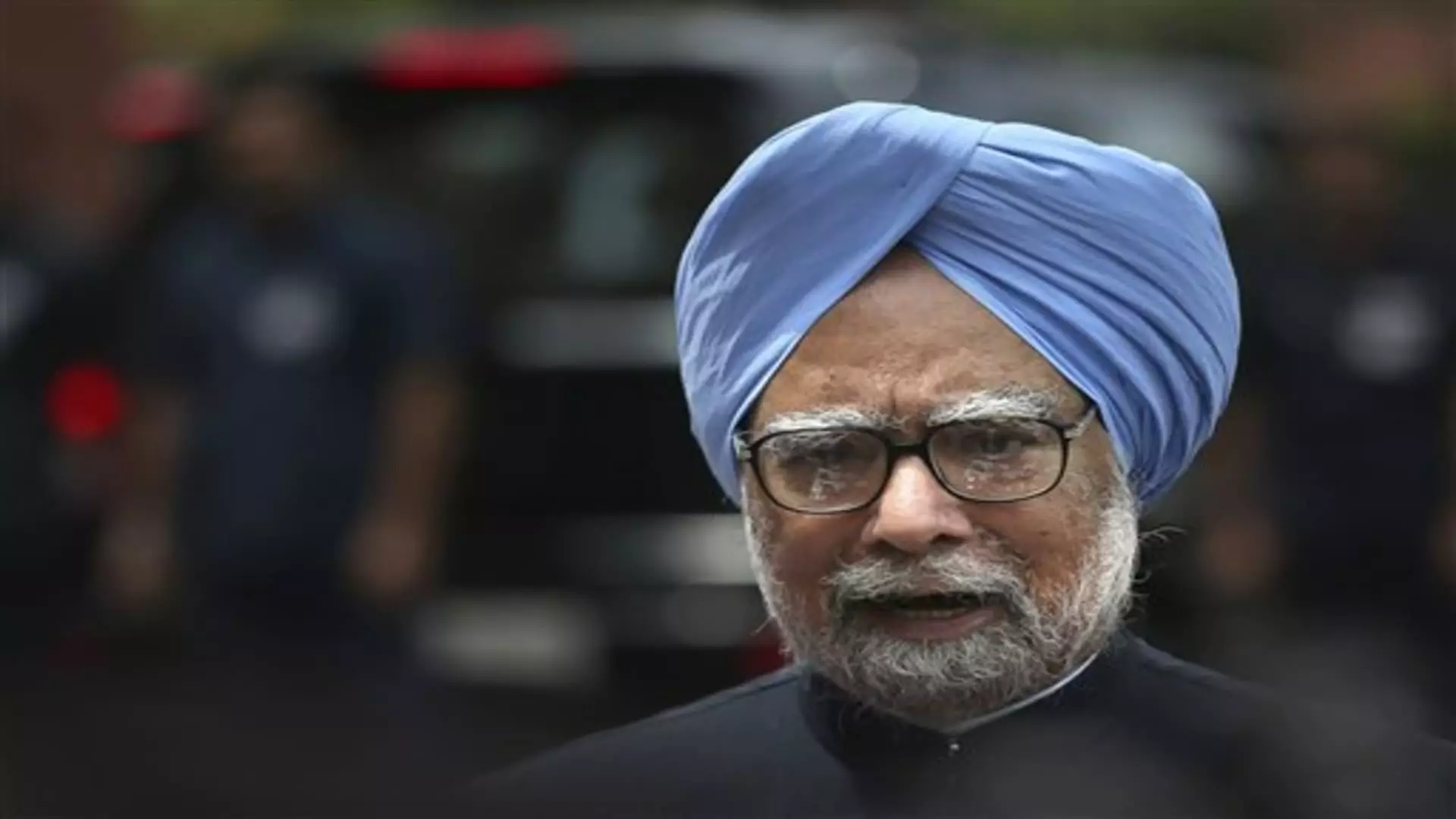The passing of Dr. Manmohan Singh at the age of 92 marks a profound moment in India’s political landscape. Often referred to as a “reluctant king” during his time in office, Singh’s leadership embodied quiet resilience and unwavering dedication to the economic upliftment of his nation. His political journey, from an unassuming upbringing in pre-partition India to the zenith of India’s political hierarchy, serves as an exemplary narrative of success against odds. Despite facing several challenges, Singh’s tenure was defined by transformative reforms that reshaped India’s economic policies and fostered significant growth.
Singh’s introduction to the world of politics was far from conventional. Initially hailed as an esteemed economist, he found himself thrust into an unforeseen role as India’s Finance Minister when the country faced a monumental balance of payments crisis in 1991. What followed was a hallmark of economic reform that not only saved India from economic peril but also set it on a path of liberalization and global integration.
A rigorous academic, Singh’s educational background laid a solid foundation for his economic policies. His Ph.D. thesis delved into the implications of exports and free trade within India’s economy—a foresight that would eventually become the backbone of his reforms in office. As Finance Minister, he championed deregulation, abolished restrictive trade practices, and opened India to foreign investments. Quoting Victor Hugo, Singh famously declared in his maiden budget speech that “No power on earth can stop an idea whose time has come,” signaling the dawning of a new economic era in India.
His efforts yielded unprecedented economic growth, lifting millions out of poverty and establishing India as a significant player in the global economy. Yet, Singh’s journey to the Prime Minister’s office in 2004 was unexpected. Initially offered the role by Sonia Gandhi, he led a coalition government during a period characterized by economic prosperity and social welfare initiatives aimed at reducing poverty in rural India.
Despite the achievements, Singh’s government faced numerous adversities. Political instability within the coalition, coupled with challenges from party allies, hampered efforts to further liberalize India’s economy. His tenure was marked by a paradox; while he commanded respect globally, back home, he often battled perceptions of power dynamics that favored Sonia Gandhi. Critics argued that Singh’s leadership style was too placid in the face of domestic politics, where aggressive maneuvering often yielded more influence.
Moreover, Singh’s second term was shadowed by controversies as several corruption scandals emerged within his government. While he was personally viewed as upright and honest, Singh’s administration struggled to stem the tide of these scandals, leading to growing discontent among the public. Protests erupted, questioning the effectiveness of his governance and contributing to a decline in political credibility.
In the latter years of his premiership, Singh’s government was increasingly seen as detached, grappling with slowing economic growth amid global financial uncertainties. The final blow came in 2014 when the Bharatiya Janata Party (BJP), led by Narendra Modi, decimated the Congress party in the national elections. Modi’s campaign promised rejuvenation, combating corruption, and fostering inclusive development, appealing to a populace disillusioned by stagnation.
Despite the challenges, Singh remained resolute in his convictions, often expressing a belief that history would judge him kindly compared to contemporary criticism. His words reflect not only humility but also a steadfast belief in the work he accomplished during his years in power.
Dr. Manmohan Singh’s legacy is complicated—an intricate tapestry of triumphs and tribulations. He is credited with laying the groundwork for India’s impressive economic trajectory and introducing foundational welfare policies. Even in the wake of challenges, Singh’s integrity and relentless pursuit of progress continue to resonate.
As India mourns the loss of this distinguished leader, it is essential to recognize the essence of his contributions—an unwavering commitment to nation-building during times of uncertainty. Dr. Singh leaves behind not just a family but also a country transformed economically. His journey from the shadows of obscurity to becoming one of the most significant figures in contemporary Indian politics inspires future generations.


Leave a Reply